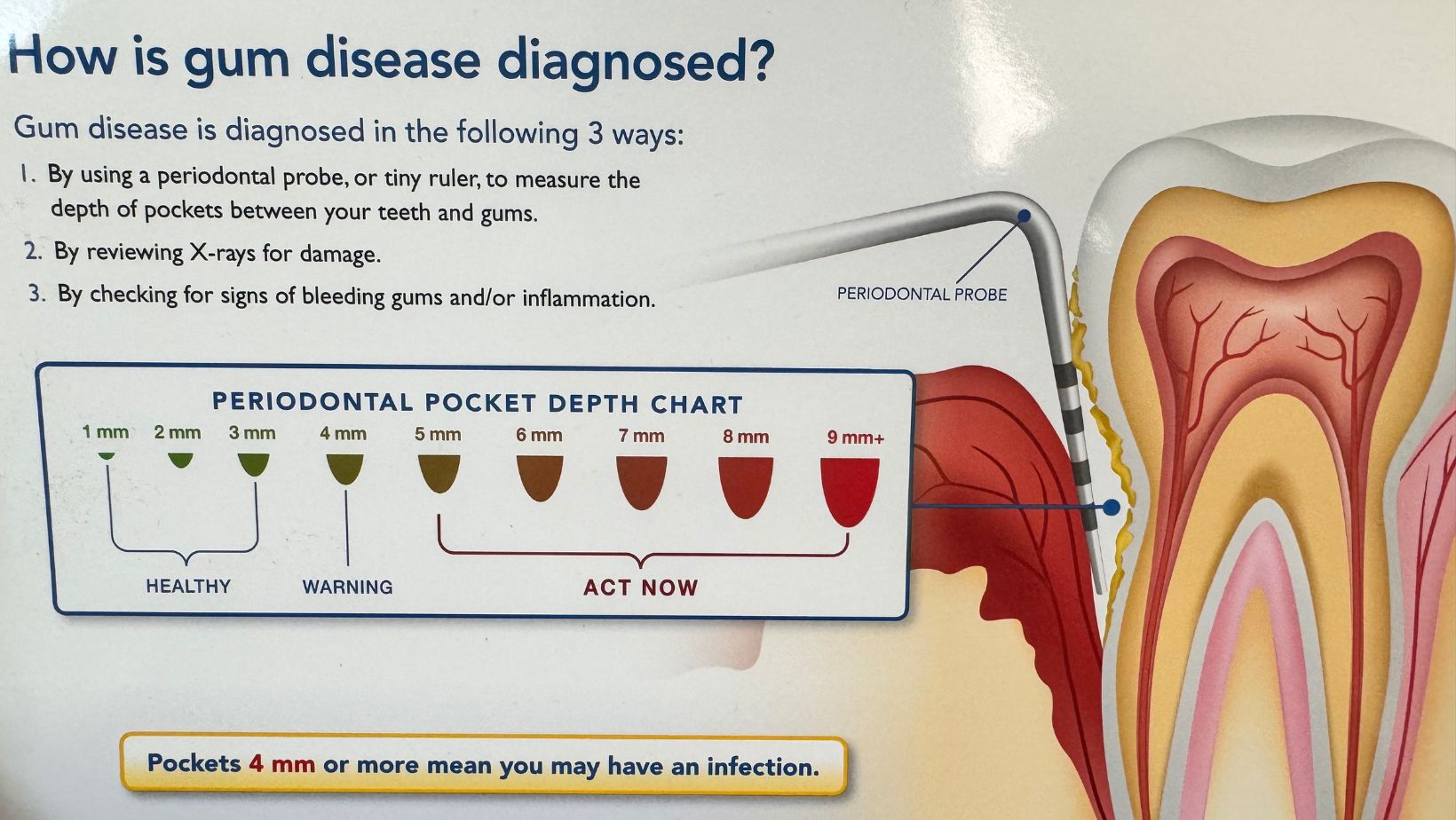
What is Regular Cleaning?
When we think about scheduling our routine dental appointment, we typically picture seeing the hygienist first to remove any tartar or plaque that we have left on the teeth over the last 6 months, polishing, flossing, and a fluoride application. In general, this is what most people can expect from their dental cleaning when they come in on a regular basis. For some, this may be every 6 months, and for others, it could be every 3 months depending on how much tartar builds up and how well you are brushing and flossing at home. Some may have an easier cleaning depending on how much plaque buildup has occurred or the length between appointments.
Did you know that not all cleanings fall into this category? A regular cleaning as described above is more of a preventative cleaning where we are cleaning the teeth prior to you having an infection or bleeding in the gums. It is a great way to prevent gum disease.
Who Needs Deep Cleaning?
Often, when patients fall behind on their regular cleanings, especially when it has been a year or more, the plaque builds up and this is full of bacteria. The bacteria produces an acid that irritates the gums and causes the gums to pull away from the tooth which creates a deeper than usual pocket between the tooth and the gums. The longer this persists, the more the gums pull away, and the deeper food and plaque can get. There is also a lot more buildup on the tooth.
The body also increases the blood supply to this area to carry away the infection but since the plaque becomes firmly attached to the tooth, the body is not able to remove it. This is why the gums start to bleed even though they don’t hurt. A toothbrush cannot get down into these areas when the pocket becomes 4mm or even up to 8mm deep. Therefore, you would require a Deep Cleaning that professionally removes all the tarter and plaque built up deep into these pockets.
How Deep Cleaning Differs from Regular Cleaning

Deep Cleaning is different from regular cleaning in several ways. First of all, as the name indicates, we have to clean deep to make sure that all of the infection is cleaned out so that the gums can reattach to the tooth and become healthy again. Without cleaning the deepest portion, the gums will not heal. If we only clean the top of the tooth as we do in a regular cleaning, they will feel better but the main problem of the infection in the gums will remain and will continue to get worse.
When the pockets get down to 5mm or more, the infection also begins to deteriorate the bone surrounding and holding in the teeth which is not reversible and if not treated will lead to the teeth getting loose and can even fall out.
Key Takeaways
While they are different types of dental cleanings, they do have some things in common. Bleeding gums are both improved after regular and deep cleanings. They are also both performed by using hand scaling and high-speed water machine scaling (cavitron/piezo). Here is how they are different:
Regular Cleanings
- Regular cleanings remove soft plaque and tartar above the gums and 1-2 mm under the gums.
- Regular cleanings DO NOT remove very deep plaque and tartar that has been there for years.
- Regular cleanings do not require numbing of the gums.
- Regular cleanings are meant for everyone, at least twice per year.
Deep Cleanings
- Deep cleanings remove very deep tartar that is 4 mm or deeper and cannot be removed at home.
- Deep cleanings require numbing of the gums for it to be a comfortable cleaning.
- Deep cleanings are specific to patients with signs of gum disease, such as gum inflammation, bleeding, deep periodontal pockets, and bone loss.
Healthy Teeth and Prevention
The goal is to get your teeth cleaned often enough to prevent infection from taking place so that deep cleaning is not needed and so that the gums and
teeth stay healthy for a lifetime. For this, our team recommends bi-yearly cleaning appointments (or more if we see a need).
Regardless of which dental cleaning you need, both types of teeth cleaning are very important in reducing the bacteria and plaque in the oral cavity and need to be completed by a dental professional. Dr. Ellison and her team have in-depth knowledge and extensive experience in treating patients with severe tartar and plaque build-up. We offer a non-judgemental office with a caring team of dental hygienists who want to help you achieve optimal oral health. Schedule your dental cleaning today!